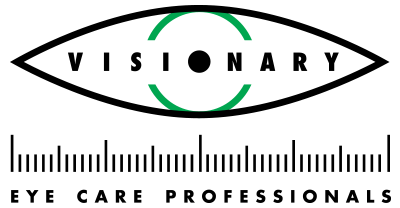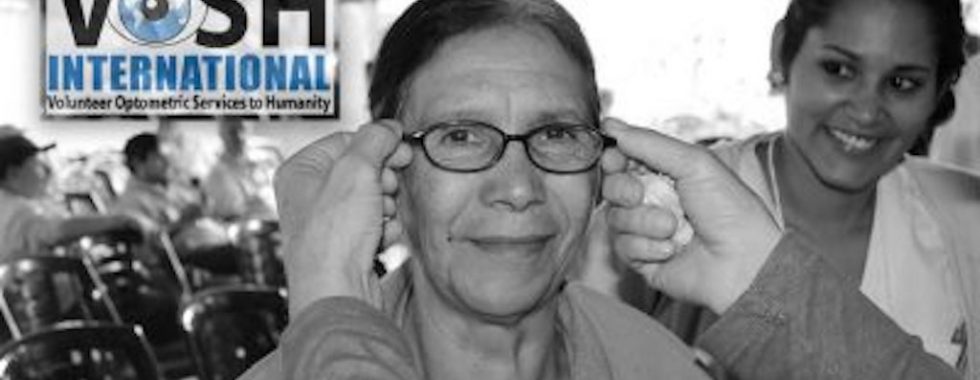In early 2018, Dr. Ciszek took his annual trip with VOSH International to provide examinations, medication, and eye care for populations who do not have access to such care. This time, it was to Bolivia. What follows is his diary entries for the trip, helping us all to get a better sense of the work and careful practice that goes into treating people around the world who are desperately in need of healthcare. Dr. Ciszek serves on the Board of Directors for VOSH International.
Tuesday, March 20, 2018
Woke up during the night and the went to the bathroom. The water was VERY dark brown. Hmmm. What is going on? Went back to sleep. Water is still brown. Went downstairs to see ask and yes, everyone´s water was brown. After running the water for a while, it became more the color of weak tea. So, bad news, showering with brown water. Good news, the hot water was fixed!
We walked up to about 150 people waiting for us at 8:00.
Mel didn’t sleep well the night before so I spent most of the afternoon in registration. It was interesting because I could sort of triage while checking them in. The ultimate in triage, an 87 year old man (all of 4’ 2”) came in with mucus basically flowing out of his eyes. When I asked him how long he had been that way, he said, oh, for years. Years. Anybody in eyecare, from 10 feel away could tell it was either chlamydia or gonorrhea. I found some gloves and walked him back to Dr. Emily. Lucky her. She confirmed that his conjunctiva was very “meaty” with mixed papillae and follicles. I went back to the hotel to get the azithromycin I carry. 1 gram later and some antibiotic drops and he should be just fine in a week or so.
We are using the drops of course that were donated by the pharmaceutical companies. The only cycloplegic / dilating drops we had were 1% cyclogel. It is pretty strong. But it is what we had. Several people from Monday returned, concerned that their pupils were still dilated and that they still were blurry at near. It was normal. Until it wasn’t. A patient came in with a bad headache, pain in her eyes and nausea. We measured her pressures and they were in the upper 40’s. Our dilating her eyes caused a known, uncommon side effect of closing the outflow of fluid from the eye. This creates a rapid onset, severe type of glaucoma. Now, this person has an eye anatomy that, this could happen if she went into a theater and it was dark enough to dilated her pupils. But the fact that it happened as an unintended result of our examination really upset the docs and I was a mess. Sandy Bury and I started her on a triad of drops, one drop every few minutes. Pilocarpine, Combigan and Lotemax. We then sent her to the local hospital so that the local ophthalmologist could continue care. A small piece of my soul died until we got word back that she was fine and that the local doctor applauded our treatment of the situation. Although it was not our fault, we pride ourselves on helping people and the thought of causing anyone any amount of pain just breaks my heart.
We rely on the readings from the autorefractor to have a place to start our glasses prescription. It isn’t as important when you have an entire 30 minutes to do an exam. But when you are trying to see a patient every five to ten minutes, we need as much help as possible. Sometime between Monday night and Tuesday morning, we jointly assume, the autorefractor got knocked over. Someone must have noticed and put the battery cover back on. We assume this because, the unit wouldn’t charge. After checking the electricity etc, Tracy was smarter than the rest of us and looked to see that the battery was missing. Her true genius kicked in when she called her contacts back in the states and they talked her through getting it set back up including clueing us in on the hidden extra battery underneath the printer (that we were not using). However, the fall had broken part of the handle and the button that starts the vision check wasn’t working. I had enough skill to take it apart and see what was wrong, but had no clue on how to fix it. CRE to the rescue. The technicians from CRE found the tiny part that was broken and were able to repair the unit. All with just optical screwdrivers that we had available.
This is a good time to reflect on the importance of our hosts. Preparing for a trip takes a lot of effort. Imagine dealing with two different federal governments, local governments, a bunch of ODs who are amazing but occasionally somewhat, shall we say, eccentric, a team of volunteers, many of whom have never been on a VOSH clinic and a couple of whom have never even been out of the country before, customs, local docs who are often fearful that we are going to take patients away from them etc, etc. Having a team in-country is key to create the foundation for and to maintain the integrity of a successful clinic.
CRE, Cooperativa Rural Eléctrica, is a foundation whose mission is to support the people of Santa Cruz by providing electricity distribution under a cooperative model.
Our hosts make sure we arrive safely, make it through customs, arrange all of the local transportation, find housing, provide breakfast and lunch, keep us safe, troubleshoot problems that occur, and even search out bars for us to relax in after clinic. They even provided dinner while we were at clinic. Essentially, they take of everything so that we can focus on providing care.
I cannot imagine that there have ever been more gracious, dedicated, hardworking, and welcoming hosts. Ricardo, Limberg, and the rest of the CRE team tended to our needs with a smile and never a complaint. Their devotion to the welfare of their people radiates from them and is almost visible.
Busses from two different rural regions arrived in the morning. Many of these people had never had an eye exam. Not ever. Some had never seen a physician of any kind before. They were entirely gracious and grateful and gave out a flood of hugs, kisses and “may God bless you”s. Some had tiny gnats that circled their heads and followed them as they navigated the clinic. We didn’t give the gnats exams. We just don’t have instruments that tiny.
We provided care to a missionary family on Monday who came back on Tuesday to help translate. The parents moved to Bolivia many years ago and are homeschooling their five lovely children, the oldest about 15 and the youngest about 8. They all, even the 8-year-old girl, pitched in to translate wherever needed.
The local press showed up and I was nominated to be among the interviewed. I had flashbacks to my one TV interview in Peru years ago but pulled myself together. Fortunately, the interviewer kept the questions short and simple.
Dr. Crew and Dr. Gallardo performed 12 cataract surgeries.

